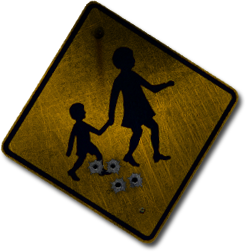One of the most tragic evolutions of the emerging drug policy is that it has become user-centric in its focus. This is not surprising when we see whose ‘fingerprints’ are on the process.
Many so called self-styled ‘peak bodies’ are contrived, resourced and populated by pro-drug lobbyists and of course, drug users themselves. However, is this really representative of the community?
Clearly not when you consider only 6-7% of the world’s population between 16 and 64 actually use or have only tried drugs in recent months and that nations like Australia who are seen (not completely accurately) as easier on drugs still have approx. 80% of the population declaring drugs should be kept illegal.
Many so called self-styled ‘peak bodies’ are contrived, resourced and populated by pro-drug lobbyists and of course, drug users themselves. However, is this really representative of the community?
Clearly not when you consider only 6-7% of the world’s population between 16 and 64 actually use or have only tried drugs in recent months and that nations like Australia who are seen (not completely accurately) as easier on drugs still have approx. 80% of the population declaring drugs should be kept illegal.
What does a functional and healthcare focused nation do when developing/crafting drug policy?
Does it simply consider the egocentric demands of the ‘dependent and indulgent few’ that demand their ‘human right’ for autonomy, privacy and healthcare be met, so they can continue to ingest health destroying and life diminishing substances and be free of all accountability, socially, financially and healthcare wise? Does this policy developing body then also ensure that the rest of the functional society ‘covers their self-indulgent butts’ of this same care-less demographic?
Does it simply consider the egocentric demands of the ‘dependent and indulgent few’ that demand their ‘human right’ for autonomy, privacy and healthcare be met, so they can continue to ingest health destroying and life diminishing substances and be free of all accountability, socially, financially and healthcare wise? Does this policy developing body then also ensure that the rest of the functional society ‘covers their self-indulgent butts’ of this same care-less demographic?
A foundation tenet of good govern as affirmed by Gus Jaspert the Deputy Director of UK Home Office speaking at the 3rd World Forum Against Drugs is, Governments should aim to…
a) Protect their citizens from harm.
b) Provide environments that enable its citizens to reach their full productive potential.
When drug policy is being developed it needs to go through this filter and the even more important filter that these two tenets inform and that is the, protection, wellbeing, productivity, function and rights of the emerging generation – the children!
UNODC supports implementing an evidence-based approach, such as the work with families described in the article. In that regard, UNODC has developed International Guidelines for Prevention that provide guidance matching current research of effectiveness across different age groups and in different sectors you can access it at the UNODC website or at this link -
UNODC supports implementing an evidence-based approach, such as the work with families described in the article. In that regard, UNODC has developed International Guidelines for Prevention that provide guidance matching current research of effectiveness across different age groups and in different sectors you can access it at the UNODC website or at this link -
Additionally, the Global Children's Project is implementing protocols in developing countries where there is evidence of increasing numbers of children, typically under the age of twelve, and adolescents who are dependent on drugs. UNODC has developed and are implementing psychosocial protocols with this vulnerable population. UNOODC will make a report available within the next month detailing the first year of implementation in Afghanistan and I will share that with you when it is available.
Cannabis and the Unborn!
- Selected Birth Defects with Prenatal Drug Use Cannabis Hawaii
- Marijuana Use Doubles Risk Of PrematureBirth 2012
- Neurotoxicology and teratology cannabis
- School achievement 14YO subject to PME synopsis
- Smoking Pot May Double Risk For Still birth Dec 13
IMPORTANT READING!





